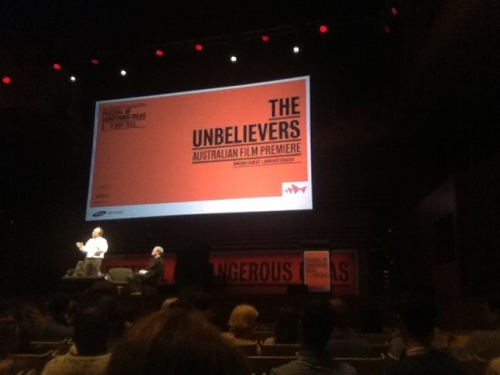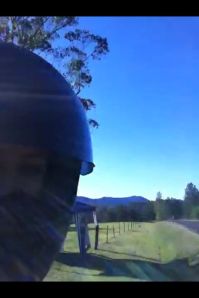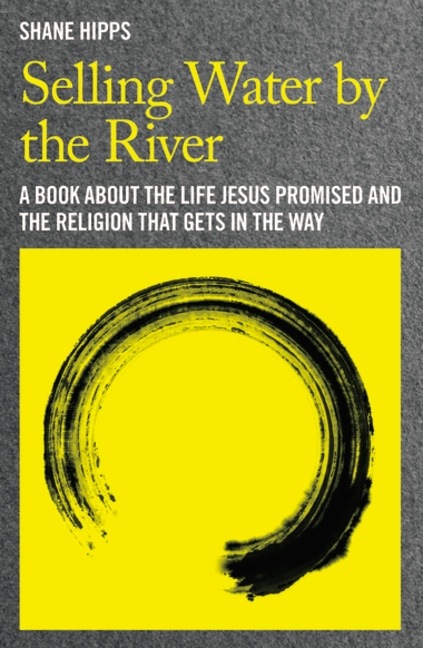I have a confession to make. As your “biggest fan”, I feel I cannot go on without letting you know.
Earlier this year, I offended you, God and myself when I voted for the conservative party in our State election. After three years of epitomising Tory-like behaviour by “fixing the economy” and cutting thousands of public service jobs (of which I am one), this revolution-loving, religious-rebelling Aussie thought they were the best option. Which weirded me out considering I am known by my peers as the twin you never (or maybe?) had, both for my hairstyle and political leaning (but definitely not his promiscuity sweetheart).
So how did I get there?
I’ve got a good friend. So good in fact that he is a Priest of sorts. Even better: he’s one of those bad-ass Priests that get in trouble for things like protesting against our Government’s approach to asylum seekers. But I’ve got a problem with him.
Take for example the sit-ins and prayer vigils he holds in MP offices, demanding that children are released from detention because their parents wanted to give them a better life. He attends, the police are called, the media take photos, the public sees the protest. Like a mouse on a wheel, this can happen multiple times and play out in the exact same way.
I’ve got another good friend (I’m pretty lucky). He’s a philosopher and says things like, “Every corrupt system needs protestors. They are like a pressure release valve where society can vent and continue unchanged.”
It makes me think…what is my Priest friend actually achieving? Why is he risking his career, his reputation, his family’s peace and his ability to have a bender in Bali (definitely in that order), just to be that protestor guy, against a government that doesn’t know nor care who he is and in front of a society that won’t be moved by his somewhat stereotypical actions?
Which leads me to think about what an action worthy of my own applause would look like on this particular political hot topic. And I think I’ve got it: become a refugee.
Australia may not listen to a Peace-loving Priest who is escorted from his local politician’s party penthouse. But what would they do with a young, happy, healthy, Anglo-Saxon son-of-a-ten-pound-Pom who just made himself Stateless? What if the refugee was one of them? How would they respond to that guy? How would the media cover that story?
Before I rush to my Aussie passport – that beautiful, leather bound luxury booklet, filled with colourful stamps from countries with symbols for letters, holding evidence of the power that it’s sacred pages possess – I must ask myself: Am I willing to become some kind of spoilt Anne Frank? The answer: piss off.
So if I’m not willing to take the plunge into eternal obscurity, what next? Make the best of a bad situation I guess. Make my annoyance with the system heard, all the while relaxing in the safety net of reaping its daily benefits, drowning out my faint cries for change with the way I spend my time and money. And when it comes to Election Day, I’ll choose a party based not on the illusion that they will be the systemic change that is required, but on what I perceive will be best for me and those around me.
Which leads me to wonder if that’s what you’re doing, too.
My ‘revolution at any cost!’ self was a bit let down when you came out in support of Miliband the other day. Hell, that bird on my shoulder questions the fact that you support big business by doing the Trews in a nice car likely using fossil fuels, recorded on devices that support slave labour. But the ‘make the best of it’ bird on the other shoulder asks “who am I to judge?” and continues on with my seemingly castrated form of protest.
So my humble question from student to teacher: Have you given up on revolution? Is it all just too hard? Do you honestly think the left is going to bring revolution any closer to reality than the right? Is there any hope for systemic change or do you now believe the system can get us somewhere better?
My Priest friend said something on Facebook this morning that I’d like your opinion on. “Perhaps [the best] politics occurs parallel to the system. We could tip a hat to mother Teresa and Gandhi etc. but more powerfully to the un-named and virtually invisible ones who act from love, transform the lives of those around them and unwittingly provide a model for others to follow. That’s a politics (power among the people) that I appreciate.”
Maybe you and I are both wrong. Maybe this whole political approach is just a distraction, keeping our oversized egos protected from having to act on our undersized convictions of selfless love and sacrifice. Maybe the best way to change the world is not to draw a crowd but to care for the guy next to us, no matter what the system is doing. Maybe that’s what old mate is doing in the MP office.
One of the most influential revolutionaries in history – that Jesus guy – waited for the system to come to him and that they did. He wasn’t political, but he was. Maybe that’s what my Priest friend is getting at.
So are you system-undermining Jesus or are you pre-election Obama? Because I’m not sure you can be both. And I’m not sure either would see eye-to-eye with the other.
I look forward to your response.
Your curious and confused disciple,
Jas




